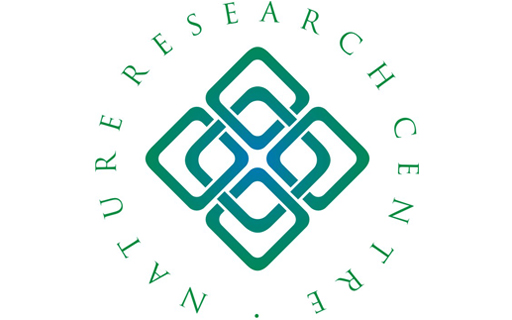_virselis2_61e29d325f9b2.jpeg)
ISSN 2538-8649 (print)
ISSN 25538-8657 (online)
Editor-in-Chief: Dr. Zigmantas Gudžinskas
E-mail: botanica.lithuanica@gamtc.lt
Botanica (formerly Botanica Lithuanica ISSN 2029-932X) is Nature Research Centre's international periodical scientific journal established by the then Institute of Botany in 1995. Since 2012, Botanica is an open access journal. It is published in English in one volume per year with four online issues (March, June, September, December).
Botanica publishes original research and review articles, short communications, commentaries, and information in the fields of botany and ecology (biomedical sciences), including algology, bryology, lichenology, plant physiology, phytocenology, systematics and taxonomy of plants and fungi, including phytoviruses, as well as basic botany, economic botany (plant resources and their conservation, biologically active compounds and their accumulation in plants, etc.) and conservation of botanical diversity.
Manuscripts are subject to review by at least two anonymous referees from Lithuania and foreign countries; other contributions are reviewed by editors. About 30 percent of manuscripts are rejected. To ensure that the content of papers published in Botanica is original, all manuscripts are checked through the CrossCheck System. CrossCheck allows detecting plagiarism and ensure the originality and high quality of articles published. The journal does not have article processing and article submission charges.
Journal Metrics
Editor-in-Chief: Dr. Zigmantas Gudžinskas
E-mail: botanica.lithuanica@gamtc.lt
State Scientific Research Institute Nature Research Centre
Akademijos Str. 2, LT-08412 Vilnius, Lithuania
Tel. no. +370 (5) 272 92 57
E-mail: sekretoriatas@gamtc.lt
Editor-in-Chief
Zigmantas Gudžinskas
State Scientific Research Institute Nature
Research Centre, Vilnius, Lithuania
https://orcid.org/0000-0001-6230-5924
Web
of Science Researcher ID ABD-1843-2020
Scopus
Author ID 15919286200
Editorial Board
Martynas Bučas
Klaipėda University, Klaipėda, Lithuania
https://orcid.org/0000-0003-4668-5669
Kevin
Cianfaglione
University of Lorraine, Metz, France
https://orcid.org/0000-0002-1336-1468
Web
of Science Researcher ID AAL-8874-2020
Scopus
Author ID 55645730000
Matej Dudáš
University of Pavol Jozef Šafárik, Košice, Slovakia
https://orcid.org/0000-0003-2446-9498
Scopus Author ID 55975933900
Gabriele
Galasso
Museum of Natural History of Milan, Milan, Italy
https://orcid.org/0000-0002-2501-456X
Scopus
Author ID 35763704900
Marija Gligora Udovič
University of Zagreb, Zagreb, Croatia
https://orcid.org/0000-0002-1982-2528
Web
of Science Researcher ID AAK-7730-2021
Scopus
Author ID 13605503200
Martin Kukwa
University of Gdańsk, Gdańsk,
Poland
https://orcid.org/0000-0003-1560-909X
Web
of Science Researcher ID X-9510-2019
Scopus
Author ID 6603490036
Sergei
L. Mosyakin
M.G. Kholodny Institute of Botany, Kyiv, Ukraine
https://orcid.org/0000-0002-3570-3190
Web
of Science Researcher ID L-9984-2019
Scopus
Author ID 6602922742
Jurga Motiejūnaitė
Nature Research Centre, Vilnius,
Lithuania
https://orcid.org/0000-0002-6949-1990
Scopus Author ID 8934879200
Olha Mykhailenko
National University of Pharmacy,
Kharkiv, Ukraine
https://orcid.org/0000-0003-3822-8409
Web
of Science Researcher ID AAH-9238-2019
Scopus
Author ID 57191992571
Dávid
U. Nagy
Goethe-Universität Frankfurt, Frankfurt am Main, Germany
https://orcid.org/0000-0001-7742-4459
Web
of Science Researcher ID N-8697-2019
Scopus
Author ID 56414387600
Robert Pal
Montana Technological University,
Montana, USA
https://orcid.org/0000-0003-2843-8517
Artur Pliszko
Jagiellonian University, Kraków, Poland
https://orcid.org/0000-0003-3620-6695
Web
of Science Researcher ID 0-8652-2018
Scopus
Author ID 55340376300
Chayakorn Pumas
Chiang Mai University, Chiang
Mai, Thailand
https://orcid.org/0000-0002-1866-3641
Web
of Science Researcher ID ABA-7314-2021
Scopus
Author ID 36992486900
Alexander N. Sennikov
University of Helsinki, Helsinki,
Finland
https://orcid.org/0000-0001-6664-7657
Web
of Science Researcher ID AAX-5035-2020
Scopus
Author ID 57188534941
Iskren
G. Sergiev
Institute
of Plant Physiology and Genetics, Sofia, Bulgaria
https://orcid.org/0000-0002-2420-9146
Scopus
Author ID 6603230596
Filip
Verloove
Meise
Botanic Garden, Meise, Belgium
https://orcid.org/0000-0003-4144-2422
Scopus Author ID 56044794900
Subject Editors
Lukas Petrulaitis – Managing Editor
State Scientific Research Institute Nature Research Centre, Vilnius, Lithuania
https://orcid.org/0000-0001-6297-0553
Web of Science Researcher ID
Scopus Author ID 57193152387
Ilona Jukonienė
State Scientific Research Institute Nature
Research Centre, Vilnius, Lithuania
https://orcid.org/K0000-0002-0664-1402
Bryology, conservation biology, plant ecology,
wetland vegetation
Sigita
Jurkonienė
State Scientific Research Institute Nature
Research Centre, Vilnius, Lithuania
https://orcid.org/0000-0002-1493-4782
Web
of Science Researcher ID H-2649-2014
Scopus
Author ID 6603128144
Cell
biology, ecotoxicology, plant ecophysiology, plant physiology
Birutė
Karpavičienė
State Scientific Research Institute Nature
Research Centre, Vilnius, Lithuania
https://orcid.org/0000-0001-5620-5775
Web
of Science Researcher ID ABG-1519-2021
Scopus
Author ID 22985270000
Economic
botany, plant morphology, plant anatomy
Judita
Koreivienė
State Scientific Research Institute Nature
Research Centre, Vilnius, Lithuania
https://orcid.org/0000-0002-8156-7548
Fundamental
and applied algology
Agricola (National Agricultural Library)
CABI (over 50 subsections)
DOAJ
EBSCO (relevant databases)
EBSCO Discovery Service
Google Scholar
SCOPUS
Web of Science - Biological Abstracts
Web of Science - BIOSIS Previews

Open Access
The Open Access policy of Botanica means that authors retain the copyright of their articles, which can be copied, downloaded and freely distributed within society. The primary advantage of Open Access journals is that the entire content is freely available to users everywhere, and this may enhance citation rates of Open Access papers.
Copyright
Authors of articles published in Botanica retain the copyright of their articles and are free to reproduce and disseminate their work under the terms of the Creative Commons Attribution License (Attribution 4.0 International - CC BY 4.0), which permits unrestricted use, distribution, and reproduction in any medium, provided the original work is properly cited.
Examples of the references
Regular journal article
Dana E.D., Verloove F., Alves P., Heiden G., 2021: Senecio brasiliensis (Spreng.) Less. (Asteraceae), another potentially invasive alien species in Europe. – BioInvasions Records, 10(3): 521–536. https://doi.org/10.3391/bir.2021.10.3.02
EPPO, 2020: PM 9/9 (2) Heracleum mantegazzianum, H. sosnowskyi and H. persicum. – EPPO Bulletin, 50(3): 515–524. https://doi.org/10.1111/epp.12687
For articles with more than 20 authors:
Chytrý M., Hennekens S.M., Jiménez-Alfaro B., Knollová I., Dengler J. et al., 2016: European Vegetation Archive (EVA): An integrated database of European vegetation plots. – Applied Vegetation Science, 19(1): 173–180. https://doi.org/10.1111/avsc.12191
Publications in a non-Latin script:
Shevchyk V.L., Shevchyk T.V., 2019: [Phytocenotic characteristics of plant communities with Amorpha fruticosa (Fabaceae) in the Middle Dnipro area (Ukraine)]. – Ukrainian Botanical Journal, 76(1): 42–51. https://doi.org/10.15407/ukrbotj76.01.042
Article in press
Badalamenti E., 2021: First record of Heptapleurum arboricola Hayata (Araliaceae) as a casual non-native woody plant in the Mediterranean area. – BioInvasions Records, 10 (in press).
Book, authored
Stuessy T.F., 2009: Plant Taxonomy. The Systematic Evaluation of Compatative Data (2nd ed.). New York.
Book, edited
Pyšek P., Cock M.J.W., Nentwig W., Ravn H.P. (eds), 2007: Ecology and Management of Giant Hogweed (Heracleum mantegazzianum). Wallingford.
Book articles
Thiele J., Otte A., 2007: Impact of Heracleum mantegazzianum on invaded vegetation and human activities. – In: Pyšek P., Cock M.J.W., Nentwig W., Ravn H.P. (eds), Ecology and Management of Giant Hogweed (Heracleum mantegazzianum): 144–156. Wallingford.
Conference proceedings and article in conference proceedings book
Kühn I., 2017: Modelling plant invasions: the role of climate, traits and socioeconomy. – In: Máguas C., Crous C., Costa C. (eds), Ecology and Management of Alien Plant Invasions. Syntheses, Challenges and New Opportunities. 4–7 September 2017, Lisboa, Portugal. Book of Abstracts: 36. Lisboa.
Máguas C., Crous C., Costa C. (eds), 2017: Ecology and Management of Alien Plant Invasions. Syntheses, Challenges and New Opportunities. 4–7 September 2017, Lisboa, Portugal. Book of Abstracts. Lisboa.
Reports and other technical documents
By author:
Smeets E., Weterings R., 1999: Environmental Indicators: Typology and Overview. EEA Technical report No 25. European Environment Agency.
By institutional author:
European Commission, 2017: Invasive Alien Species of Union Concern. Luxembourg.
Legal acts
CIR, 2017: Commission implementing regulation (EU) 2017/1263 of 12 July 2017 updating the list of invasive alien species of Union concern established by Implementing Regulation (EU) 2016/1141 pursuant to Regulation (EU) No 1143/2014 of the European Parliament and of the Council. – Official Journal of the European Union, L182: 37.
European Community, 2000: Directive 2000/60/EC of the European Parliament and of the Council of 23 October 2000 establishing a framework for Community action in the field of water policy. – Official Journal of the European Communities, L327: 1–72.
Įstatymas, 2020: Lietuvos Respublikos laukinių augalų ir grybų įstatymas. – Teisės aktų registras, Nr. 21145.
Theses
Rijal D.P., 2015: Invasive Heracleum in northern Europe: Introduction history and impact on native plant diversity. A dissertation for the degree of Philosophiae Doctor. University of Tromsø. Tromsø.
Web sites and online databases
Kirschner J., Štepánek J., Greuter W., 2007: Taraxacum. – In: Greuter W., Raab-Straube E. von (eds), Compositae. Euro+Med Plantbase – the information resource for Euro-Mediterranean plant diversity. http://ww2.bgbm.org [accessed 15 December 2021].
IPNI, 2021: International Plant Name Index. https://www.ipni.org [accessed 15 December 2021].
We recommend that you submit manuscripts for consideration in Botanica by email to botanica.lithuanica@gamtc.lt
A template file is available on request.
Manuscripts are submitted to the Plagiarism Prevention check system, in order to ensure that the content published is original. Similarity check allows for comprehensive manuscripts screening with vast database of web pages and academic publications. Manuscripts judged to be plagiarised or self-plagiarised will not be considered for publication.
